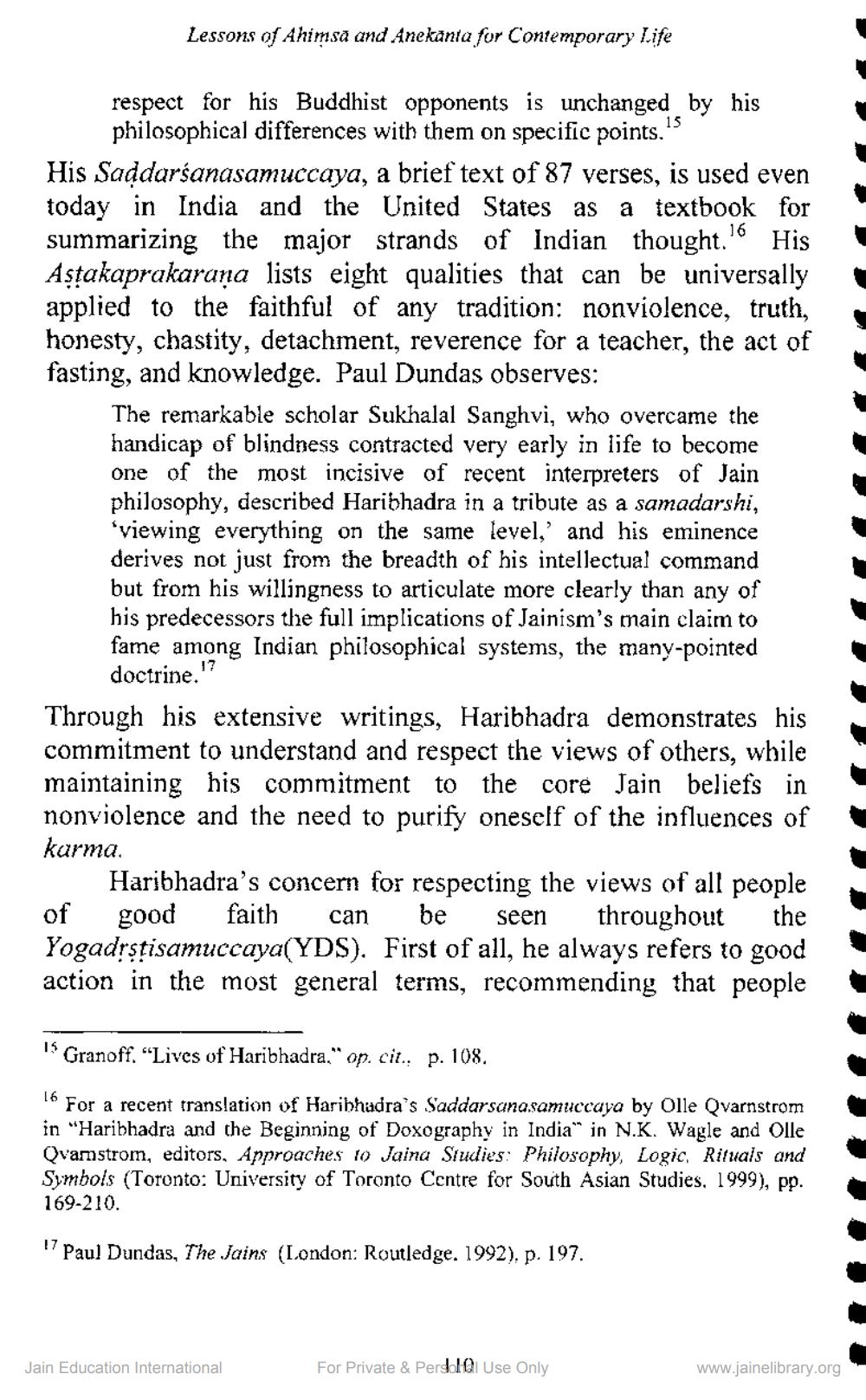Book Title: Religious Dissonance and Reconciliation The Haribhadra Story Author(s): Christopher Key Chapple Publisher: Z_Lessons_of_Ahimsa_and_Anekanta_for_Contemporary_Life_014006.pdf View full book textPage 9
________________ Lessons of Ahimsa and Anekanta for Contemporary Life respect for his Buddhist opponents is unchanged by his philosophical differences with them on specific points." His Saddarśanasamuccaya, a brief text of 87 verses, is used even today in India and the United States as a textbook for summarizing the major strands of Indian thought. His Astakaprakarana lists eight qualities that can be universally applied to the faithful of any tradition: nonviolence, truth, honesty, chastity, detachment, reverence for a teacher, the act of fasting, and knowledge. Paul Dundas observes: The remarkable scholar Sukhalal Sanghvi, who overcame the handicap of blindness contracted very early in life to become one of the most incisive of recent interpreters of Jain philosophy, described Haribhadra in a tribute as a samadarshi, 'viewing everything on the same level, and his eminence derives not just from the breadth of his intellectual command but from his willingness to articulate more clearly than any of his predecessors the full implications of Jainism's main claim to fame among Indian philosophical systems, the many-pointed doctrine." Through his extensive writings, Haribhadra demonstrates his commitment to understand and respect the views of others, while maintaining his commitment to the core Jain beliefs in nonviolence and the need to purify oneself of the influences of karma. Haribhadra's concern for respecting the views of all people of good faith can be seen throughout the Yogadrstisamuccaya(YDS). First of all, he always refers to good action in the most general terms, recommending that people Is Granoff. “Lives of Haribhadra." op. cit., p. 108. 16 For a recent translation of Haribhadra's Saddarsanasamuccaya by Olle Qvarnstrom in "Haribhadra and the Beginning of Doxography in India in N.K. Wagle and Olle Qvamstrom, editors, Approaches 10 Jaina Studies: Philosophy, Logic, Rituals and Symbols (Toronto: University of Toronto Centre for South Asian Studies, 1999), pp. 169-210. 17 Paul Dundas, The Jains (London: Routledge. 1992), p. 197. Jain Education International For Private & Persal Use Only www.jainelibrary.orgPage Navigation
1 ... 7 8 9 10 11 12 13 14 15 16
